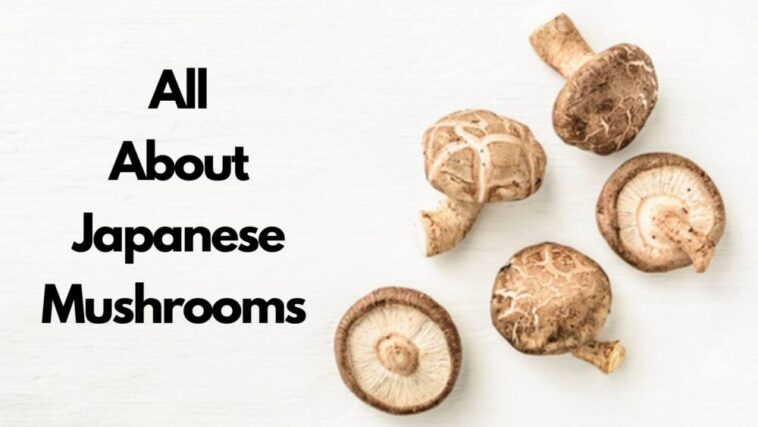这里有一个 日本菇类清单 你一定要试试!看看吧!
蘑菇是日本料理中最基本的食材之一。蘑菇不只有一种类型;有广泛的种类供你选择。我喜欢蘑菇,喜欢它们的多功能性。
在不同的菜肴中使用它们可以真正提升味道,并增加日本的味觉味道。
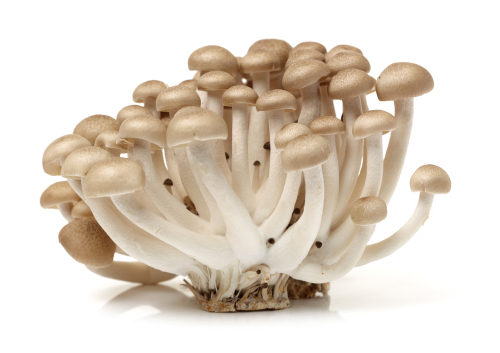
我试图把一些最受欢迎和最美味的日本蘑菇放在这个名单上。我希望你能为你的几乎所有菜肴找到下一个最喜欢的日本原料。

什么是蘑菇?
蘑菇是真菌家族的一部分。更具体地说,蘑菇是真菌的肉质和果实形式。虽然所有的蘑菇都是真菌,但并非所有的真菌都是蘑菇。蘑菇通常有茎和帽,它们也有鳃。
菌褶只不过是我们在蘑菇的菌盖下面看到的小褶皱。这些腮用来产生孢子,帮助我们生产更多的真菌。
还可以阅读。日本的蘑菇清单
日本蘑菇清单--快速总结
| 日本蘑菇清单 | 营养成分 | 健康益处 |
| 香菇 | 维生素B 磷 维生素D 钾 | 有助于降低胆固醇的抗病毒作用 |
| 麦芽糖 | 抗氧化剂 纤维素 维生素D 钾 | 有助于降低血糖 有助于增强免疫系统 |
| Eryngii | 碳水化合物 蛋白质 维生素B3 维生素D | 有助于预防肿瘤和癌症 有助于改善血液刺激 |
| 朳 | 铁 蛋白质 铜 维生素D | 有助于平衡糖分水平 可以缓解便秘 |
| 松茸 | 维生素B3 维生素D 铜 钾 | 帮助改善免疫系统 促进循环系统 |
| 名子 | 维生素B 铜 钾 钙 | 有助于降低胆固醇 有助于提高对葡萄球菌感染的抵抗力 |
| 石梅寺 | 锌 维生素B 蛋白质 铜 | 增强新陈代谢,降低胆固醇 |
- 相关的。 日本花生对你有好处吗?
- 相关的。 日本的蜘蛛蟹可以吃吗?
- 相关的。 日本李子是否可以食用
页面内容
日本蘑菇清单
香菇
香菇是世界上最常见的蘑菇之一。这种蘑菇的名字来源于生长在枯木上的树。众所周知,香菇非常健康,而且富含营养。
从外观上看,香菇有褐色的大菇盖,颜色从棕褐色到深色不等。香菇的茎是白色的。
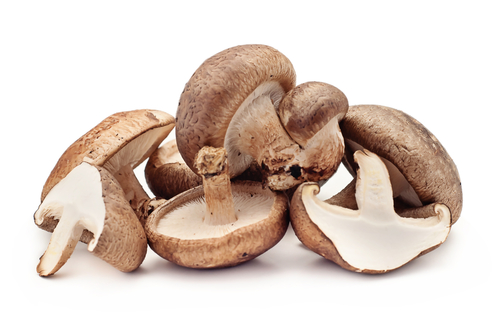
香菇有一种非常烟熏的味道,我绝对喜欢。当我在家里准备香菇时,我喜欢把它们加入汤和炒菜中。你可以找到香菇的干货和新鲜形式。
如果你使用的是这种蘑菇的干货,确保在准备烹饪前将其浸泡几个小时。在把香菇放在盘子里之前,确保把它们完全弄干。如果你想买新鲜的香菇,一定要检查其茎部的嫩度。如果茎是嫩的,你可以把它们留在蘑菇上。比较硬的应该去掉,可以用来做汤汁。
多功能的香菇非常芳香。我也非常喜欢这种有嚼劲的致密纹理,正因为如此,这可以作为肉类的替代品。
香菇中的营养成分。
- 维生素B
- 磷
- 维生素D
- 钾
对健康有益。
- 有助于降低胆固醇
- 抗病毒作用
- 帮助 刺激免疫细胞
- 有助于预防肿瘤和癌症
相关的。 为什么日本的水果这么贵
麦芽糖
我的谈话是一种看起来非常有趣的蘑菇,在日本相当流行。在英语中,这种蘑菇的名字被翻译为 "跳舞的蘑菇"。然而,不要被它滑稽的外表所迷惑,它是一种绝对的美味佳肴,也非常健康。
这些蘑菇发现于日本的硬木森林。与香菇的质地相比,平菇的质地比较柔软。此外,你不会发现通常的吱吱声,这是几种蘑菇的主要特征之一。
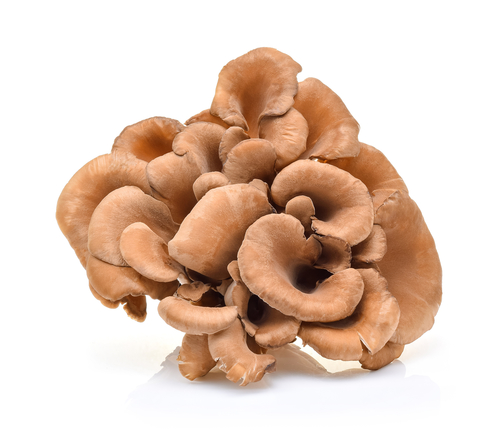
蘑菇有一个白色的坚硬底座,长成几片羽毛状的叶片。你不需要用刀把它们拉开,你可以简单地用手指把它拉出来。我绝对喜欢这种蘑菇的强烈味道。它有一种非常早的辛辣味道,使它成为炒菜的完美原料。我也喜欢用这种蘑菇来煨和烤。
蘑菇中的营养成分。
- 抗氧化剂
- 纤维
- 维生素D
- 钾
- 维生素C
- 铜
对健康有益。
- 有助于降低血糖
- 有助于提高免疫系统
- 促进心脏健康
- 有助于减轻体重
相关的。 什么是白赛?
Eryngii
这些蘑菇也被称为喇叭王、牡蛎王和法国号角。这些蘑菇是现有最大的牡蛎蘑菇之一。这些蘑菇不仅原产于日本,而且还生长在亚洲其他地区、欧洲地中海地区、中东和北非。

要识别这种类型的蘑菇是很容易的。这些蘑菇有一个肉质的、白色的茎,这些蘑菇的棕色菌盖尺寸相对较小。如果你曾经尝试过生吃这些蘑菇,你会发现它们完全没有味道或香气。
然而,相信我,当你烹饪它们时,它们变得绝对健康,而且有大量的味道。我喜欢烧烤和炙烤这些蘑菇,但你可以用几种不同的方法来准备它们,以阻止这对所有那些素食者和素食者来说尤其是一个极其完美的选择。
Eryngii蘑菇中的营养成分。
- 碳水化合物
- 蛋白质
- 维生素B3
- 维生素D
对健康有益。
- 有助于减少慢性病的风险
- 可以帮助预防肿瘤和癌症
- 有助于改善血液刺激
- 有助于解决任何皮肤问题
相关的。 为什么日本的芒果这么贵?
朳
金针菇看起来像小花;它们被发现在集群中,通常是薄、长和脆弱的。金针菇是日本菜肴中最常见的配料之一。然而,它们在韩国和中国的菜肴中也非常频繁地出现。
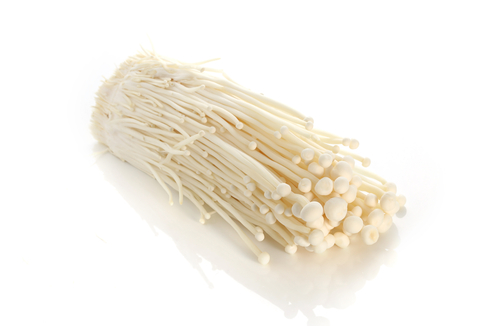
这些蘑菇也被称为冬菇,因为它们的主要生长季节在九月到次年三月之间。金菇在一年中的任何时候都可以在任何一家日本超市轻松买到。
如果您想知道蘑菇是否新鲜,请务必查看其菌柄和菌盖。
如果菌柄黏糊糊的,呈褐色,一定要避免食用。一定要选择菌盖洁白、有光泽的金菇,因为它们表示新鲜。
我喜欢金针菇脆脆的口感,以及与这种口感相得益彰的温和果味。我喜欢用金菇制作健康的汤和沙拉。
金针菇中的营养成分。
- 纤维
- 维生素B
- 铁
- 蛋白质
- 铜
- 维生素D
对健康有益。
- 可以帮助改善免疫系统
- 可以帮助肿瘤和癌症的抵抗
- 有助于平衡糖分水平
- 可以缓解便秘
松茸
如果您喜欢蘑菇,您可能已经知道松崎蘑菇。这种蘑菇以辛辣著称。
这些蘑菇生长在亚洲、欧洲和北美洲。不过,要在普通超市找到这些蘑菇可能非常困难。我非常喜欢这些蘑菇浓郁的味道和香气。
松茸中的营养成分。
- 维生素B3
- 维生素D
- 铜
- 钾
对健康有益。
- 增加心脏健康
- 可以帮助肿瘤和癌症的抵抗
- 有助于改善免疫系统
- 促进循环系统
名子
名子菇是小群的,有橙色的菌盖。它们有一层胶质涂层。Nameko在日本非常受欢迎,现在这种蘑菇有了自己的手机游戏,叫做蘑菇花园。
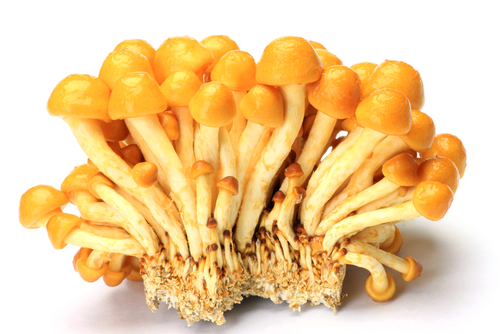
蘑菇以其温和的坚果味而闻名,使其成为日本料理中最重要的食材之一。这些蘑菇经常被用于炒菜和面条。蘑菇的菌盖是粘稠的,因此它被用作汤的增稠剂。蘑菇的粘液不会给菜肴带来任何味道。
纳米卡蘑菇中的营养成分。
- 维生素B
- 铜
- 钾
- 钙
对健康有益。
- 可以帮助改善免疫系统
- 有助于降低胆固醇
- 有助于提高对葡萄球菌感染的抵抗力
石梅寺
姬松茸有不同的形状和颜色。所有这些不同变体的味道和质地都是一样的。生的蘑菇有非常苦的味道和令人不快的香气。然而,所有这些在烹调时都会完全消失。
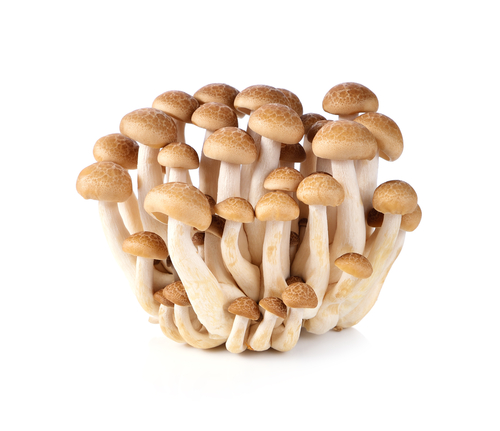
在菜肴中使用时,蘑菇给人一种非常松脆的口感和温和的坚果味。你可以用姬松茸做任何类型的菜,因为它们是多功能的。你可以在炒菜、汤、火锅、意大利面和海鲜中使用它们。
姬松茸的类型。
- Buna Shimeji
- 布纳皮-史密斯(Bunapi Shimeji
- 鸠摩智
- 白塔莫吉达克
姬菇中的营养成分。
- 钾
- 锌
- 维生素B
- 蛋白质
- 铜
- 维生素D
对健康有益。
- 改善心脏健康
- 改善免疫系统
- 增强新陈代谢
- 降低胆固醇
平菇(杏鲍菇)
平菇俗称杏鲍菇,是一种广受欢迎的食用菌,学名为 Pleurotus ostreatus。
它因其细腻的风味、鲜嫩的口感和众多潜在的健康益处而在世界各地广泛种植和食用。
下面是一些关于杏鲍菇的信息:
- 外观
牡蛎蘑菇因其外形酷似牡蛎而得名。它们有一个明显的贝壳状或扇形菌盖,颜色从白色、灰色到淡褐色不等。
盖子的直径从几厘米到 20 厘米(8 英寸)不等。
杏鲍菇的茎干通常偏离中心,有长有短,取决于具体品种。
- 种植
杏鲍菇比较容易栽培,通常用于商业种植。它们可以在各种基质上生长,包括稻草、锯末、木屑甚至咖啡渣。
它们在适度的温度下生长,需要较高的湿度。杏鲍菇以生长迅速而著称,在最佳条件下,它们可以在几周内成熟。
- 风味和烹饪用途
杏鲍菇味道温和细腻,略带坚果香味。它们质地细嫩,可用于各种烹饪用途。
杏鲍菇可以清炒、烧烤、爆炒,也可以添加到汤、炖菜和面食中,或用作比萨饼的配料。由于杏鲍菇肉质鲜美,在素食烹饪中经常被用作肉类替代品。
- 营养优势
杏鲍菇不仅美味可口,还具有多种潜在的健康益处。蚝菇的热量和脂肪含量都很低,对于那些希望保持健康饮食的人来说是个不错的选择。
此外,杏鲍菇还是蛋白质、膳食纤维、B 族维生素(如 B1、B2、B3 和 B5)以及钾、磷和铁等必需矿物质的良好来源。杏鲍菇还含有潜在的抗氧化和增强免疫力的化合物。
- 药用潜力
杏鲍菇在传统医学中有着悠久的使用历史,尤其是在亚洲文化中。
人们认为它们具有某些药用特性,包括支持免疫系统和潜在的消炎作用。
一些研究表明,杏鲍菇还具有抗病毒和抗菌特性。
- 野生品种
除了栽培品种(Pleurotus ostreatus),世界各地还有许多野生杏鲍菇品种。
其中一些野生物种也可以食用,也可以觅食,但由于存在误认的风险,食用野生蘑菇时一定要谨慎。
总之,杏鲍菇(平菇)是一种广受欢迎和广泛种植的食用菌,以其温和的味道、多种烹饪用途和潜在的健康益处而闻名。
无论是炒菜、浓汤还是其他菜肴,杏鲍菇都是美食世界中的一道美味。
云耳菇
菊耳又名云耳,是一种食用菌,常用于亚洲菜肴,尤其是中国菜和日本菜。它的学名是 Auricularia polytricha。这种蘑菇因其独特的外观而得名,其薄而半透明的波状边缘蘑菇伞就像精致的云耳。
以下是有关云耳菇(Kikurage)的一些关键信息:
- 外观
菊苣蘑菇的蘑菇伞薄如胶质,呈深褐色至黑褐色。蘑菇伞通常很小,直径约 3 到 8 厘米(1 到 3 英寸)不等。
它们的形状通常不规则,像一只折叠或皱缩的耳朵,这就是俗称 "云耳菇 "的由来。
- 质地与口感
云耳蘑菇的口感非常独特。重新水化后,云耳菇变得柔软如胶,薄薄的蘑菇伞略带脆感,但又有嚼劲。
使用它们的主要原因是其有趣的质地,而不是其味道,因为它们的味道非常清淡,往往会吸收烹饪菜肴时的味道。
- 烹饪用途
在亚洲烹饪中,菊苣蘑菇因其口感和多功能性而备受推崇。它们常用于汤、炒菜、火锅和沙拉等菜肴中。
云耳蘑菇味道中性,能很好地吸收菜肴中其他配料的味道,因此在许多食谱中都很受欢迎。
- 准备工作
干云耳蘑菇广泛供应,使用前需要重新水化。要重新水化,通常要在温水中浸泡约 20 到 30 分钟,直到它们变得柔软有弹性。
在重新水化后,蘑菇通常会被修剪掉坚硬的部分,然后再加入菜肴中。
- 营养简介
菊苣蘑菇的热量和脂肪含量都很低,是各种菜肴的健康配料。虽然它们的营养不是特别丰富,但确实能提供一些膳食纤维和少量矿物质。
- 文化意义
几个世纪以来,亚洲传统医学一直在使用云耳蘑菇,因为它对健康有益,包括可以促进皮肤健康和血液循环。
然而,有关这些潜在健康影响的科学研究还很有限。
总之,菊苣(又称云耳菇)是亚洲菜肴中一种有趣而受欢迎的配料,因其独特的外观、胶质质地和在各种菜肴中的多样性而闻名。
为什么日本的蘑菇如此美味?
蘑菇有一种味觉的味道。鲜味的意思无非是指蘑菇的美味;它有一种非常丰富和咸的味道。当你烹调日本蘑菇时,它们会带出一种非常有嚼劲和酥脆的质地。它们中的许多都有泥土和木质的味道,而其他的则是温和和甜味。
它为汤、炒菜、沙拉和其他烹饪作品增添了独特的口感和视觉吸引力。
关于日本蘑菇的事实
- 在日本现有的5000多个品种的蘑菇中,大约有100个品种可以食用。
- 蘑菇在日本被称为 "金子"。
- 市场上最常见的蘑菇品种包括Nameko、Shiitake、Matsutake和Maitake。
- 众所周知,蘑菇是日本料理中最主要的原料之一。
日本蘑菇的营养价值
众所周知,日本蘑菇的营养密度很高,充满了出色的健康益处。这些蘑菇是维生素D、钾、锌、铁、锰和氨基酸的极佳来源。
如何选择日本蘑菇以及如何储存它们?
当你去超市购买蘑菇时,要确保它们是干的。然而,干燥的蘑菇和枯萎的蘑菇之间是有区别的。千万不要去买看起来枯萎的蘑菇。如果蘑菇被包裹在塑料中,寻找任何凝结的迹象。
当您储存蘑菇时,请将它们放在一个纸袋中。这将防止蘑菇变得太湿或太干。如果你像我一样,如果你喜欢用保鲜膜储存你的汤,那么戳几个洞总是有帮助的。即使这样,也要确保你在几天内使用蘑菇。储存蘑菇前不要洗,只有在你要使用它们时才洗。
日本蘑菇。常见问题
金针菇是否健康?
金菇含有极其丰富的维生素、矿物质和健康氨基酸。如果您的饮食习惯是健康的,那么这就是您可以添加的一个非常好的选择。
这些蘑菇胆固醇含量低,膳食纤维含量高,而且金针菇还富含抗氧化剂。
几个世纪以来,这些蘑菇一直被用来制作亚洲药物。人们认为,用这些蘑菇制成的药物可用于治疗高血压、高胆固醇、肝病和胃病。
日本人是如何吃蘑菇的?
蘑菇是日本最常用的食品之一。人们认为,蘑菇对增强免疫系统极为重要,而且蘑菇还具有抗癌和抗氧化的功效。
日本人喜欢用蘑菇做味噌汤或荞麦面。蘑菇也是火锅中非常常见的配料。
日本最受欢迎的蘑菇是什么?
日本最受欢迎的蘑菇是香菇。它以肉质鲜美、味道鲜美而闻名。
香菇有新鲜的和干的两种,可用于制作各种菜肴,如汤、炒菜和天妇罗。
以下是日本其他一些受欢迎的蘑菇:
- 香菇 香菇也被称为 "森林中的母鸡",它的蘑菇伞大而呈扇形,味道鲜美。它们通常用于天妇罗或炒菜。
- 金菇 这些白色的小蘑菇口感松脆,味道清淡。它们常用来做汤和沙拉。
- Shimeji 蘑菇 姬松茸也被称为 "山毛榉蘑菇",茎干短而细长,蘑菇伞有白色、棕色或黄色。它们略带甜味,常用于炒菜。
- 名子蘑菇 这种橙色的小蘑菇质地像果冻,味道清淡。它们常用来做汤和沙拉。
日本有多少种蘑菇?
据估计,日本有 4000 到 5000 种不同的蘑菇。其中只有约 100 种可以食用。
日本潮湿的气候非常适合蘑菇的生长,这里的蘑菇种类繁多。
最受欢迎的日本蘑菇包括
- 香菇:这种蘑菇以其肉质和鲜味而闻名。它是日本料理中的常见配料,有新鲜和干制两种。
- 麦芽糖:这种蘑菇也被称为 "林中母鸡",蘑菇伞大,呈扇形,味道鲜美。通常用于天妇罗或炒菜。
- 朳:这种白色小蘑菇口感松脆,味道清淡。它们常用来做汤和沙拉。
- 石梅寺:这种蘑菇也被称为 "山毛榉蘑菇",茎干短而细长,蘑菇伞有白色、棕色或黄色。它们略带甜味,常用于炒菜。
- 名子:这种橙色的小蘑菇质地像果冻,味道清淡。它们常用来做汤和沙拉。
日本有哪些珍稀蘑菇?
以下是一些在日本可以找到的珍稀蘑菇:
- 山下岳:这种蘑菇也被称为 "金针菇",因其味道鲜美、香气扑鼻而备受青睐。它产于日本山区,每年只能采摘很短的一段时间。
- 星竹:这种蘑菇又名 "星菇",因其菌盖呈星形而得名。它生长在日本的森林中,具有浓郁的泥土味。
- 红嘴鸥:这种蘑菇也被称为 "刺猬蘑菇",因其刺而得名。它生长在日本的森林中,有一种苦涩的泥土味。
- 枸杞:这种蘑菇也被称为 "竹菇",产于日本的森林中。它的味道清甜,常用于炒菜。
- 姬松茸:这种蘑菇也被称为 "巴西蘑菇",原产于巴西。现在日本也有种植。它有坚果和泥土的味道,常用于炖汤和炖菜。
这些只是在日本可以找到的珍稀蘑菇中的几种。它们都因其独特的风味和香气而备受推崇,在专卖店或农贸市场都能买到。
日本最贵的蘑菇是什么?
日本最昂贵的蘑菇是松茸。这是一种生长在日本和北美森林中的松茸。
松茸具有浓郁的松香味,因其稀有性和药用价值而备受青睐。每磅松茸售价高达 $4,000 美元。
以下是松茸如此昂贵的一些原因:
- 它们每年只在秋季的几个月里短暂供应。
- 松茸很难栽培,大多数松茸都是野生采摘的。
- 它们的味道和药用价值都很高。
- 它们常用于日本料理,被视为美味佳肴。
松茸是日本料理中一种很受欢迎的配料,也被用于传统医药中。人们认为松茸对健康有许多益处,包括增强免疫系统、改善呼吸系统健康和减轻压力。
日本最毒的蘑菇是什么?
日本最毒的蘑菇是死亡帽(Amanita phalloides)。它也是全球最致命的蘑菇之一。
这种蘑菇看起来与可食用的蘑菇相似,但却含有毒素,会严重损害肝脏和肾脏。即使摄入少量也会导致呕吐和腹泻等症状,继而导致器官衰竭。
烹饪并不能保证安全。如果误食,及时就医至关重要。为了避免危险,只有在您是识别专家的情况下才能食用野生蘑菇。
最适合你的蘑菇!
我喜欢蘑菇,因为它们非常美味,而且用途广泛。这些是一些最受欢迎的日本蘑菇,你可以得到。我建议你尽可能多地尝试这些食物,以达到食物的高潮。
还请阅读


